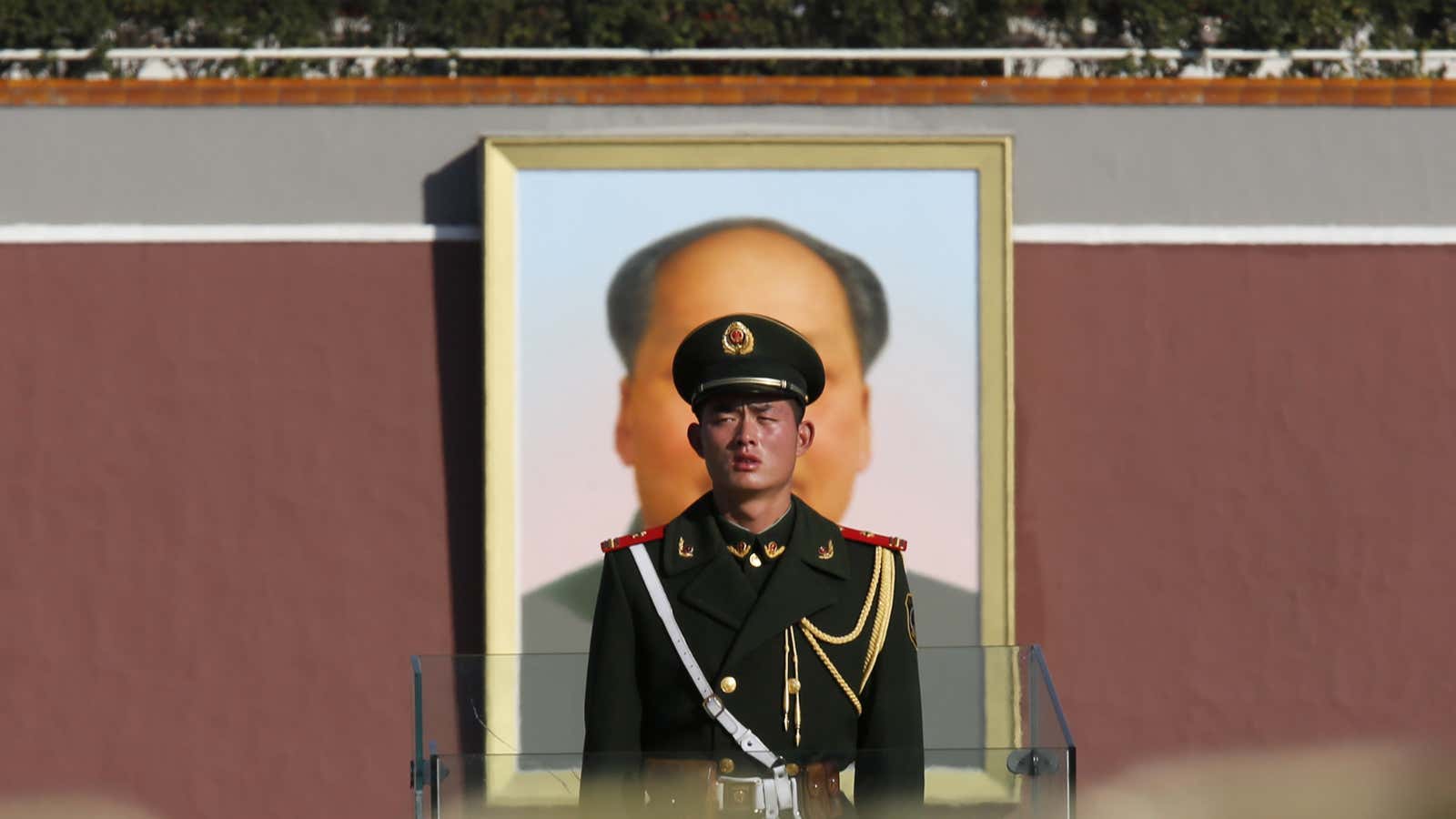For any new Chinese administration, the third plenary meeting of the Communist Party’s new Central Committee is the big one—historically, the meeting that sets the themes and tempo of a new leadership’s economic policies. The third plenum under president Xi Jinping has just closed, and as we wrote last week, expectations ran high. But not just for the party; as renowned China scholar Barry Naughton recently explained, Xi’s own credibility was on the line:
Without serious economic reform measures, Xi’s administration quickly will come to be seen as retrograde and, worse, irrelevant to China’s real economic problems. Xi has to deliver, and so the odds are that he will.
So did Xi deliver? Not really. The most important reform on the table is balancing the playing field between the state and private sectors. The plenum communique (link in Chinese) got off to a good start, saying, “The core issue is properly handling the relationship between the government and markets”(h/t Sinosphere).
Propped up by oligopolies, subsidies and cheap loans, state enterprises suck up resources that private businesses would use more efficiently. Shifting capital from the former to the latter is critical as a Chinese debt crisis looms and economic growth slows. It’s also a key way of reducing the cronyism that so infuriates the Chinese public and distributing wealth more equitably. But here’s what the communique went on to say (h/t @vshih2):
“We must stalwartly consolidate and develop the public economy, insist on the core role of public ownership, allow the state-owned economy to play a leading role, and unstintingly strengthen the state-owned economy’s vitality, dominance and influence.”
Other key reforms are rural land ownership, reforming local government finances, and abolishing the hukou (household registration) system that creates two classes of Chinese citizens. There was nothing more than rehashed platitudes on those.
Granted, are all thorny issues, and it might be naive to expect major new directions in policy. But the communique’s retrenchment of the role of state-owned companies is a throwback to the era of Hu Jintao, the last president. That suggests that Xi lacks the political muscle many assume China’s president must have.
It also darkens the prospects for broader market reforms that the administration has already promised (e.g. interest-rate liberalization), says Minxin Pei, a professor at Claremont McKenna College.
“It is well known—even obvious—what kind of economic reforms are needed. What prevents China from pursuing these reforms is a combination of opposition from powerful entrenched interest groups—state-owned enterprises, local governments, the economic-policy bureaucracy, and family members of political elites and well-connected businessmen…,” Pei writes in Caijing. ”Unless Xi and his colleagues demonstrate their resolve to overcome such opposition and launch comprehensive reforms, their chances of success are not high.”
